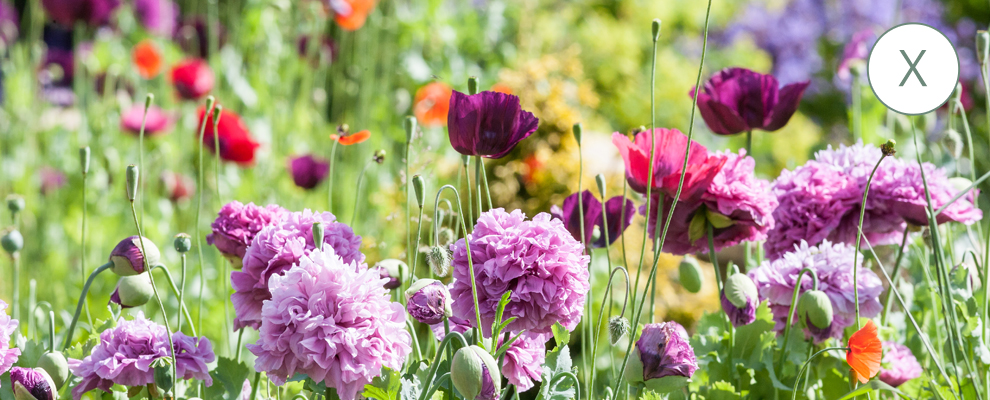
Organic Livestock Farming
Level: QLS Level 3
Gain a detailed understanding of organic livestock farming, how to convert to organic production and:
- Receive the Certificate of Achievement at QLS Level 3
- Achieve the HCC Certificate
- Flexible home-study to fit your learning around your life
This course teaches the principles and techniques of organic livestock farming. You will study topics including how to convert to organic production and meet the standards criteria; the importance of manure and rotational systems; feeding organic stock; housing standards; disease prevention; and marketing organic meat.
Your first set of course materials will be sent to you when you enrol. You can start as soon as you want and progress through the course at your own pace, studying when and where you choose.
This flexibility makes it easy to fit learning around work and family commitments.
The extensive course materials have been developed by organic farming experts and are clear and straightforward, so your studying is easy and enjoyable. As you complete each lesson, your tutor will promptly return your marked assignment with constructive feedback and guidance. (You can also contact your tutor or the support team for help at any point during your studies.)
The course includes all the required study materials.
There is no formal examination. On successful completion you will be awarded an HCC Certificate and the Certificate of Achievement at QLS Level 3. You have 2 years to complete the course.
Lesson 1 – Organic certification bodies
- Guaranteeing the product
- How to keep within the standards criteria
- Changing to organic production
- Stages of converting the farm to organic production
- Two ways of converting a farm
- Misconception on organic farming
- Modern farm problems
- Five freedoms – animal welfare
- General principles of livestock in organic systems
- Stocking rates for inside housing/yards/outside fields/pastures
- Breeds best suited for organic systems
- Dairy
- Sheep
- Beef
- Pigs
- Poultry
- Carcass classification
- Integration of organic breed
- Record keeping in organic systems
- The conversion plan
- Specific livestock records
Lesson 2 – The importance of manure
- Storage management
- Planning where use of liquid manures is possible
- Organic standards of nitrogen application
- How to work out the total n production from a holding
- The benefit of individual organic livestock
- Rotations within livestock system
- Pasture management
- Livestock production progress
- Introducing white clover
- Management priorities for different stock
- The importance of ph
- Seed mixtures in organic livestock systems
- Grazing systems on organic farms
- Grass growth
- Fodder crops in livestock systems
- Weed control
- Value of weeds
- Managing upland grassland
- Pasture management for outdoor pigs
- Poultry
- Venison
Lesson 3 – Feeding organic stock
- Recording animal feeds
- Diets for ruminants
- Feeding the dairy cow on a fully organic farm
- Obtaining the correct balance
- Feed materials implemented in gm’s
- Comparing protein levels oilseeds
- Use of non-organic feeds
- Home grown feed
- Feed materials allowed with dm percentage
- Minerals and vitamins in organic feeding
- Ingredients not allowed in organic feeds
- Diets for non-ruminants
- Feeding pigs
- Feed conversion efficiency (fce)
- Water
- Livestock feeding summary
- Housing standards within organic units
- Bedding
- Space requirements
- Ventilation
- Lighting
- Housing systems for different types of stock
- Building hygiene
- Housing summary
Lesson 4 – The animal’s own resistance to disease
- Organic animal health plan
- Points to remember when drawing up the plan
- Principals of disease prevention in organic livestock
- Specific health problems associated with organic production
- Worm control in organic stock
- Main types of internal parasites that cause illness
- Clean grazing system
- Control specific diseases in organic systems for dairy cattle
- Controlling specific diseases in organic systems for sheep
- Pigs, poultry
- Homeopathy in organic systems
- Summary on health in organic systems
- Summary – how to control intestinal worms in sheep
Lesson 5 – Consumers’ needs
- Labelling organic food
- General points on the state of the organic market
- Selling the product
- Direct sales
- The ‘traditional’ types of marketing
- Multiple retailers
- Customer relations
- Branding
- Advertising the product
- Supply and demand
- Creating the right image
- Creating a marketing plan
- Know the business
- Marketing and selling all types of organic meat
- The development of organic meat marketing
- How much do you know about organics?
Upon successful completion you will receive; the Certificate of Achievement* at QLS Level 3. This course has been designed by The Horticultural Correspondence College to meet specific learners’ and/or employers’ requirements which cannot be satisfied through current regulated qualifications. The Quality Licence Scheme, endorses high-quality, non-regulated provision and training programmes.
You will also receive an HCC Certificate*, graded to show the standard you have reached. The HCC’s reputation means this can be highly regarded on a CV and, combined with your portfolio of coursework, is evidence of your achievements (whether you are applying for a job or a more advanced study course).
* Your certification will be issued once you have successfully completed your course and finished your course payments.
We are proud of our friendly, caring ethos and aim to do all we can to help you succeed.
Our tutors are all experienced, highly qualified and passionate about sharing their love of their subject. You can phone or email your tutor throughout the course – to ask questions, for advice, encouragement or to draw on their wealth of knowledge.
You can also contact the support team who are here to help you Monday to Friday, 9am to 5pm.
You do not need previous farming knowledge or experience to enrol on this course.
If needed you have 2 years to complete the course. Many students are able to complete this course in approximately 6-12 months*.
*Timescales are approximate and depend upon application and motivation.
- Once you have successfully completed this course you could work on a farm, either self employed or working for a farmer, looking after livestock using organic techniques. You may be suitable for roles such as a general farm worker, herdsperson, shepherd or trainee assistant farm manager.
- If you already work in livestock farming, this course could help you take advantage of the growth of the organic farming sector and demand for organic meat (supermarkets are expanding their organic ranges and more consumers are going straight to the farm or farmers’ markets to get the best quality meat). It would demonstrate to prospective employers that you understand organic techniques, and could also help you set up your own organic farm or convert an existing farm to organic practices.
- You could progress to the following HCC courses:
Organic Arable Farming
Mixed Farming
Tropical Agriculture
Sheep Farming
£62.50* per month for 6 months
(£30 admin fee included)
£60.71* per month for 7 months
(£30 admin fee included)
£60.71* per month for 7 months
(£30 admin fee included)
£59.37* per month for 8 months
(£30 admin fee included)
£59.37* per month for 8 months
(£30 admin fee included)
£58.33* per month for 9 months
(£30 admin fee included)
£56.81* per month for 11 months
(£30 admin fee included)
£60.41* per month for 12 months
(£30 admin fee included)
















